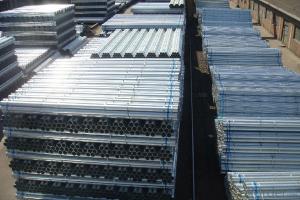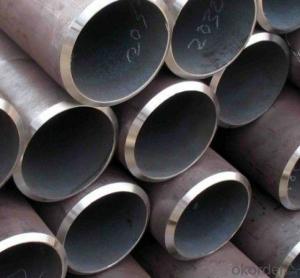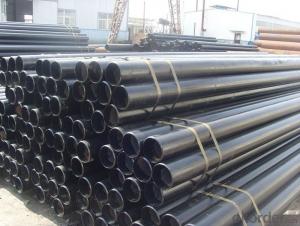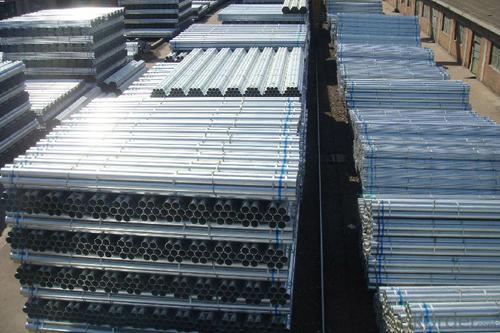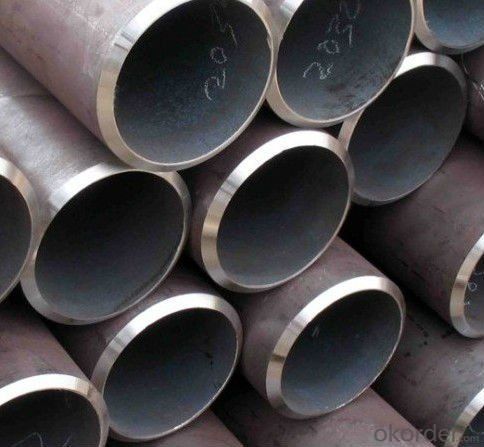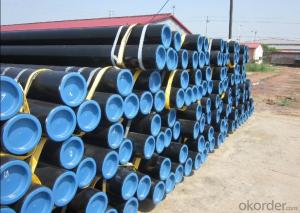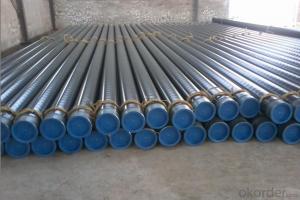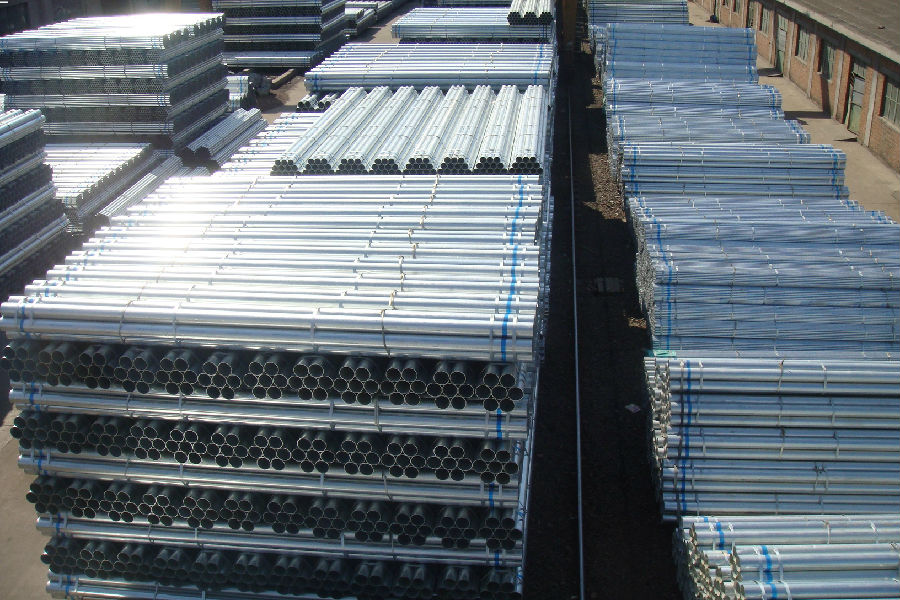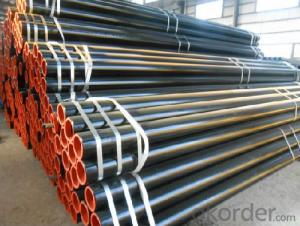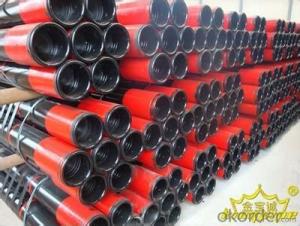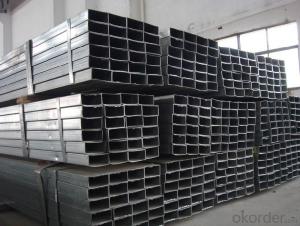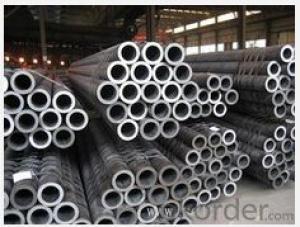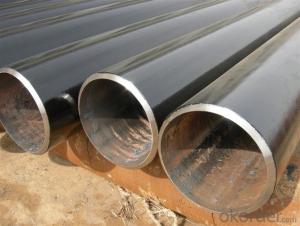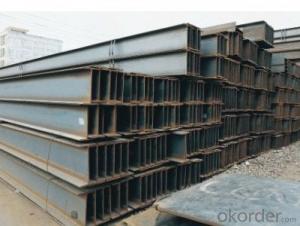Weld Steel Pipe & 18 Inch Steel Pipe from okorder.com
- Loading Port:
- Tianjin
- Payment Terms:
- TT or LC
- Min Order Qty:
- 25 m.t.
- Supply Capability:
- 10000 m.t./month
OKorder Service Pledge
OKorder Financial Service
You Might Also Like
Product Description:
1、Structure of Weld Steel Pipe & 18 Inch Steel Pipe Description:
Welded steel pipe are commonly welded by means of bent round, we can weld the steel into square and other shapes and then welded into the surface of the steel pipe seam. Steel plate or steel pipe is used in the blanks of welded steel. We can use electric arc welded pipe, high or low frequency electric resistance welded pipe, gas pipe, stove pipe, Bundy tubes according to different methods.
2、Main Features of the Weld Steel Pipe & 24Inch Steel Pipe:
·Reasonable price
·Relatively light weight
·Optional torsional strength
·Support high pressure
·Resist corrosion
3、The Weld Steel Pipe & 24Inch Steel Pipe Images:
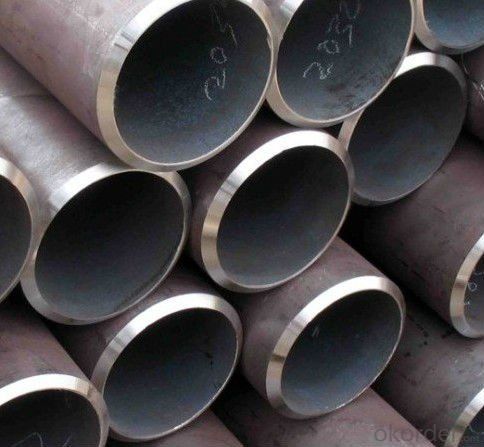
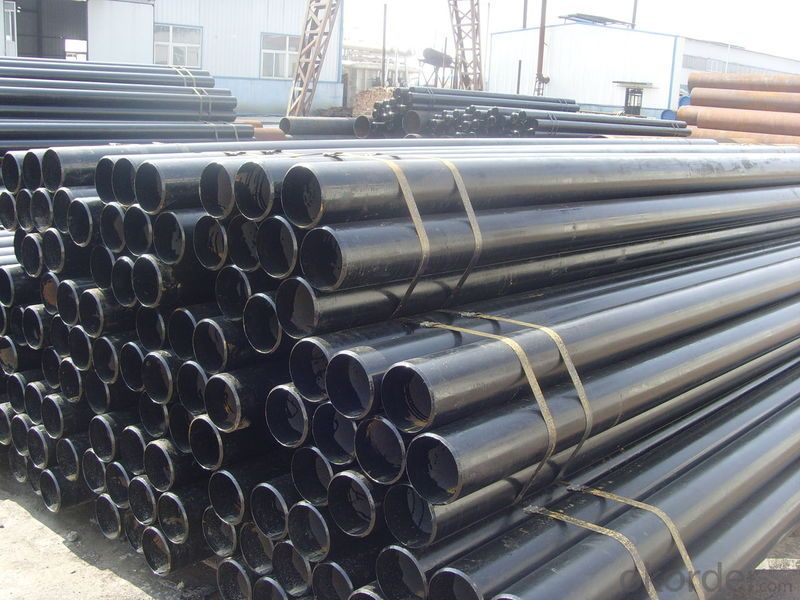
4、The Weld Steel Pipe & 24Inch Steel Pipe Specification:
Standard: JIS, DIN, ASTM
JIS G3445-2006, JIS G3444-2006, JIS G3446-2004, DIN EN 10216-1-2004, DIN EN 10217-1-2005, DIN EN 10305, ASTM A106-2006, ASTM A53-2007, ASTM A789-2001, ASTM A1020-2002, ASTM A179-1990, ASTM A199Grade: Cr-Mo alloy, 16Mn, ST35-ST52, STB35-STB42
15CrMo, 10CrMo910, 30CrMo, 16Mn, St37, St52, St42, St45, STB35, STB42Thickness: 2 - 30 mm Section Shape: Round Outer Diameter: 10 - 568 mm Secondary or Not: Non-secondary Application: Structure Pipe Technique: Hot Rolled Certification: API Surface Treatment: Paint Special Pipe: API Pipe Alloy Or Not: alloy
Specifications
1.W.T from 2mm to 70mm
2.OD from 10 to 568mm
3.product by our own factory
4.on time dilivery
5、FAQ of Square Tube:
①How is the quality of your products?
Our products are manufactured strictly according to national and internaional standard, and we take a test
on every pipe before delivered out. If you want see our quality certifications and all kinds of testing report, please just ask us for it.
Guaranteed: If products’ quality don’t accord to discription as we give or the promise before you place order, we promise 100% refund.
②How about price?
Yes, we are factory and be able to give you lowest price below market one, and we have a policy that “ for saving time and absolutely honest business attitude, we quote as lowest as possible for any customer, and discount can be given according to quantity”,if you like bargain and factory price is not low enough as you think, just don’t waste your time.Please trust the quotation we would give you, it is professional one.
③Why should you chose us?
Chose happens because of quality, then price, We can give you both.Additionally, we can also offer professional products inquiry, products knowledge train(for agents), smooth goods delivery, exellent customer solution proposals.Our service formula: good quality+good price+good service=customer’s trust
SGS test is available, customer inspection before shipping is welcome, third party inspection is no problem.
Any question, pls feel free to contact us !
- Q: What's the difference between a cracked carbon steel tube and a liquid carbon steel tube?
- Test: cracking carbon steel pipe in addition to eddy current testing, but also to do ultrasonic testing, and liquid carbon steel tubes are generally only eddy current testing.
- Q: What is the difference between seamless steel pipe and welded pipe?
- The main molding process is different. Ordinary steel pipes, such as tap water pipes, are usually welded by bending flat plates, and you can find a seam on it;
- Q: Are steel pipes suitable for underground irrigation pumping?
- Yes, steel pipes are suitable for underground irrigation pumping. Steel pipes are known for their durability and strength, making them an ideal choice for underground applications. They can withstand high levels of pressure, resist corrosion, and are less likely to be affected by external factors such as soil movement or temperature changes. Additionally, steel pipes have a longer lifespan compared to other materials, reducing the need for frequent replacements. However, it is important to ensure that the steel pipes are properly coated or lined to prevent corrosion and to regularly inspect and maintain them to ensure their effectiveness and longevity.
- Q: What is the compressive strength of steel pipes?
- The compressive strength of steel pipes can vary depending on the specific grade and manufacturing process, but it is generally high. On average, steel pipes have a compressive strength ranging from 60,000 to 120,000 pounds per square inch (psi).
- Q: What is the role of steel pipes in power plants?
- Steel pipes play a crucial role in power plants as they are used for the transportation of various fluids, such as water, steam, and oil, throughout the facility. They provide a reliable and durable means of conveying these substances under high pressure and extreme temperatures, ensuring the smooth operation of power generation processes. Additionally, steel pipes are also utilized for structural support in power plant construction, serving as a vital component in the overall infrastructure of the facility.
- Q: The outer circle of a seamless steel pipe 50 head into the outer circle of the 40 to close
- According to the metal processing performance, pipe size, quality requirements, as well as investment and benefits to choose different processing methods and corresponding auxiliary processes. The basic process of cold rolling of cold drawn pipe are: (1) tube feeding, the pipe material for hot-rolled finished or semi-finished tube, pipe extrusion pipe and welded pipe; (2) pipe material preparation, including inspection, bundling, pickling, cleaning, washing, drying, neutralization, grease and so on; (3) cold processing (cold or cold); (4) finished finishing finished including heat treatment, straightening, sampling, end cutting, inspection (manual inspection and various testing), pressure test, oiling, packaging and warehousing etc.. Different products are refined and the content varies.
- Q: What are the common defects found in steel pipes?
- Some common defects found in steel pipes include corrosion, cracks, pitting, scaling, and distortion.
- Q: How are steel pipes protected against internal corrosion?
- Steel pipes are protected against internal corrosion primarily through the use of protective coatings such as epoxy or polyethylene. These coatings act as a barrier, preventing contact between the steel surface and corrosive substances present in the transported fluids. Additionally, corrosion inhibitors are often added to the transported fluids to further reduce the likelihood of internal corrosion. Regular inspections and maintenance are also carried out to identify any potential corrosion issues and address them promptly.
- Q: What are the common sizes of steel pipe fittings?
- The common sizes of steel pipe fittings can vary depending on the specific application and industry standards. However, there are several standard sizes that are commonly used across different industries. These sizes range from ¼ inch to 48 inches in diameter. Some of the most common sizes include ½ inch, ¾ inch, 1 inch, 1 ¼ inch, 1 ½ inch, 2 inch, 2 ½ inch, 3 inch, 4 inch, 6 inch, 8 inch, 10 inch, 12 inch, 14 inch, 16 inch, 18 inch, 20 inch, 24 inch, 30 inch, 36 inch, 42 inch, and 48 inch. These sizes are often available in various lengths to accommodate different installation requirements. It is important to consult industry standards and specifications to determine the appropriate size of steel pipe fittings for a specific project.
- Q: Are steel pipes suitable for use in nuclear power plants?
- Yes, steel pipes are suitable for use in nuclear power plants. They are commonly used in various systems such as cooling, steam, and reactor coolant systems due to their high strength, durability, and resistance to corrosion. Additionally, steel pipes can withstand the high pressure and temperature conditions present in nuclear power plants, making them a reliable choice for this critical infrastructure.
Send your message to us
Weld Steel Pipe & 18 Inch Steel Pipe from okorder.com
- Loading Port:
- Tianjin
- Payment Terms:
- TT or LC
- Min Order Qty:
- 25 m.t.
- Supply Capability:
- 10000 m.t./month
OKorder Service Pledge
OKorder Financial Service
Similar products
Hot products
Hot Searches
Related keywords
